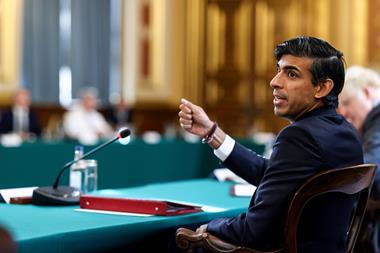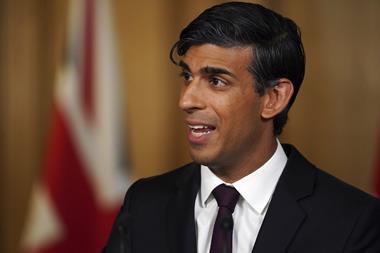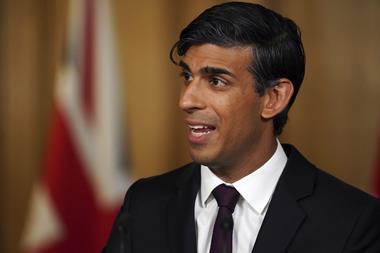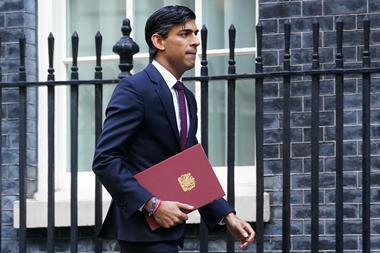The chancellor has today announced new business support schemes to deal with the ongoing coronavirus crisis, including changes to the job support scheme that replaces furlough at the end of the month.
Rishi Sunak said he would be making the scheme “more generous for employers” in Tier 3 regions by reducing the number of hours an employee would need to work a week to be eligible and reducing employer contributions.
The new measures come as the retail sector enters the crucial golden quarter and as Covid-19 cases across the country are spiking.
The government said in the highest-risk areas, it would cover the full cost of employers paying two-thirds of people’s salaries where they cannot work for a week or more.
Sunak also said staff would now only need to work 20% of their contracted weekly hours to be eligible for the scheme, as opposed to 33%. Businesses will only have to contribute 5% wages rather than a third.
The chancellor also announced an extension of business grants, offering those affected by any of the tiered restrictions cash grants of up to £2,100 a month, whether they have remained open or not.
The grants can be backdated to August, so will offer relief for a number of regions in the north of England, including Greater Manchester and Liverpool.
Sunak’s third measure was increasing income support from 20% to 40% for the self-employed.
“This is our plan: a plan for jobs, for businesses, for the regions, for the economy, for the country – a plan to support the British people,” he said.
However, shadow chancellor Anneliese Dodds called the measures a “patchwork of poor ideas, rushed out at the last minute”.
While many of the new measures were focused on the hospitality and leisure sectors, the new schemes will have some effect on the retail sector.
As data from Liverpool’s Business Improvement District shows, strong hospitality and leisure offerings remain crucial in driving footfall.
A week after becoming the first UK city to enter the government’s highest tier of restrictions, Liverpool city centre footfall fell back to early July levels due to the forced closure of many bars and restaurants.


























No comments yet